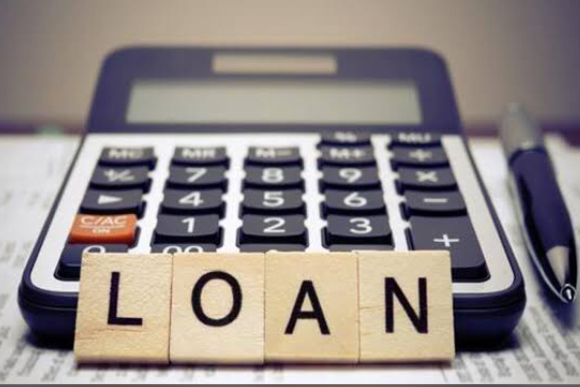Some States in Nigeria borrowed about N200 billion as domestic debts at the first quarter of the year.
It was earlier reported that January to March 2023 were significant months in the nation’s political history.
Campaigns and politicking got to their peak in January; the presidential and National Assembly elections were held on February 25, while the governorship and state assembly polls were conducted on March 18.
As governors were moving from one place to another for campaigns, some of them were also borrowing for reasons best known to individual States.
Delta, Niger, Ogun and Edo States emerged the top borrowers in this first quarter of 2023, incurring over N180 billion, according to data released by the Debt Management Office (DMO) in its report.
According to the DMO, Delta State alone borrowed up to N117bn as its debt profile rose from N304,245,915,945.65 in December 2022 to N421,776,084,974.72 in March 2023.
In Niger, a total of N25,828,085,692.17 was borrowed in the first three months of this year, spiking the debt figure of Niger from N95,590,899,934.18 to N121,418,985,626.35.
Ogun State, on the other hand, borrowed over N22bn within the period under review. The Gateway State’s debt increased from N270,450,024,234.78 in December 2022 to N293,204,959,775.19 in March this year.
Likewise, the DMO report disclosed that the Edo State government acquired about N16bn loan in the first quarter of the year. In December 2022, Edo was owing N110,591,684,782.43. The figure has since risen to N126,441,400,757.30 in March, 2023.
It was gathered that Adamawa State got a loan of over N6bn in the period under review. The State’s debt profile grew higher from N124,000,573,916.51 in the last quarter of 2022 to N130,978,200,452.33 three months after.
The Lagos State government added N5bn more to its debt profile, increasing from N807,208,634,237.88 to N812,383,923,050.01 at the end of March.
Sokoto and the Federal Capital Territory borrowed N3bn each in the period being examined; jerking up their debt figures to N93,707,999,936.88 and N84,773,760,127.36 respectively.
Also, Bauchi and Enugu added about N1bn each to their debts. From 91,856,182,849.75 in December 2022, Enugu now owes N92,688,975,881.26. Bauchi, which had 143,638,075,199.37 debt figure in 2022, now owes N144,542,559,993.41.
It was observed that while some States continued to borrow during the electioneering period, others made efforts to pay back parts of their debts.
States like Zamfara, Abia, Akwa Ibom, Bayelsa, Ekiti, Gombe, Yobe, Kogi, Borno, Kaduna, Osun and others have reductions in their debt stocks in March 2023, compared to December 2022.
Highest debtors
From the DMO report, it is disclosed that Lagos State currently remains the most indebted State in Nigeria, with N812,383,923,050.01 debt profile.
Lagos State is followed by Delta, whose debt figure soared to N421,776,084,974.72 in March 2023.
Ogun State comes third with N293bn; Rivers follow with N225bn; Akwa Ibom has N206bn, while Imo is owing N202bn.
Cross River owes N196bn; Oyo, N161bn; Plateau, N148bn; Osun, N147bn; Bauchi, N144bn; Benue, N141bn; Bayelsa, N140bn and Adamawa, N130bn.
Meanwhile, Jigawa is the State with the lowest domestic debt figure at the moment, owing a sum of N43bn.
Kebbi states comes after Jigawa with N60bn domestic debt figure, as Katsina parades N62bn.
The DMO said Nasarawa owes N71bn; Ondo, N75.5bn; Ebonyi, N75.8bn; Anambra, N77bn; Kaduna, N80bn; FCT, N84bn; and Yobe, N88bn.
It was stated that the total domestic debt figure of all the 36 States and the FCT was N5.33 trillion in December 2022, but has now risen to N5.47 trillion.
DMO noted that the Domestic Debt Data report was generated from the signed-off received from the 36 States of the Federation and FCT
It added further that the Domestic Debt Stock for 31 States: “Abia, Adamawa, Akwa Ibom, Anambra, Bauchi, Bayelsa, Borno, Cross River, Delta, Ebonyi, Edo, Ekiti, Enugu, Gombe, Imo, Jigawa, Kaduna, Kebbi, Kogi, Kwara, Lagos, Nasarawa, Niger, Ogun, Ondo, Osun, Oyo, Plateau, Sokoto, Yobe, Zamfara and the FCT are as at March 31, 2023.”
However, the Domestic Debt Stock Figures for Benue and Kano States were as at December 31, 2022, while that of Katsina and Taraba States were as at September 30, 2022.
It stated that the “Domestic Debt Stock Figure for Rivers State was as at September 30, 2021.”
Expert speaks
Meanwhile, an Auditor and Fellow of the Institute of Chartered Accountants of Nigeria (ICAN), Segun Elegbede, said states continue to borrow in order to finance budget deficits due to lack of enough money generated as internal revenues and from federal allocation.
According to Elegbede, in cases where there is not enough money to fund capital projects, state governments will have no other option than to borrow from local on foreign sources.
In an interview with Elegbede, who is also a Fellow of the Chartered Institute of Taxation of Nigeria, maintained that some borrowings are to take care of emergencies that might arise from unforeseen incidents like war, famine, natural disasters and others.
The taxation practitioner added that some governments borrow to reduce the economic burden on taxpayers and to service some loans.
However, he regretted that there are governors who borrow money under the guise that they need it to fund capital projects, “however, the money ends up in private pockets.”
Elegbede, who is a Senior Manager at B.A Professional Services (Chartered Accountants), Lagos, listed the effects of borrowing to include “financial crises in states, reduction in financial capitals available to the private sector, higher debt interest payments, the need to raise taxes in the future, rise in inflation, among others.”
Speaking on the way out of excessive borrowing, Elegbede advised states “to think out of the box and increase their internally generated revenue (IGR) without inflicting hardship on the poor masses.”
He charged governors to improve their tax collection system and reduce corruption, saying that “stealing of public funds is why some states remain poor.”
The financial expert enjoined governors to reduce recurrent expenditure and cut down on unnecessary expenses.
According to him, no state should borrow money for the purpose of funding an election.




Leave a reply